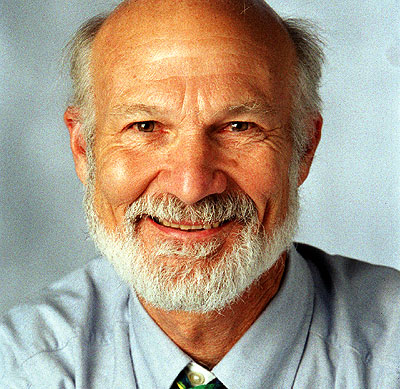How to be Theologically Funny: Stanley Hauerwas Delivers Annual Malcolm Reid Lecture
At 90 years old, barren Sarah laughed at God’s promise of a child.
While the events of our lives do not surprise God, they never fail to keep us on our feet, in fear, in awe and in good humor. Humor is in fact a necessary, human response to the absurdity of the world, and historically, the Jewish people happen to be quite good at it.
 How Jews and Christians relate to God through humor intrigues Stanley Hauerwas, world-renowned American theologian and public intellectual. The Gilbert T. Rowe Professor Emeritus of Divinity and Law at Duke Divinity School visited Gordon at the end of October to give the annual Malcolm Reid Lecture titled “How to be Theologically Funny.”
How Jews and Christians relate to God through humor intrigues Stanley Hauerwas, world-renowned American theologian and public intellectual. The Gilbert T. Rowe Professor Emeritus of Divinity and Law at Duke Divinity School visited Gordon at the end of October to give the annual Malcolm Reid Lecture titled “How to be Theologically Funny.”
Based on a chapter from his book, The Work of Theology, Hauerwas drew upon the commentaries of Ted Cohen, Karl Barth and Sam Wells to discuss how humans use humor to acknowledge the incomprehensibility of life.
Beginning with Sarah’s response of laughter, Jewish humor has developed as a form of recognizing this incomprehensibility. As Hauerwas noted, “Humor is liberation because it expresses our limitations.” For the Jewish people, a sense of humor demonstrates confidence in their identity: “Moses’ simple reply to the burning bush, ‘Here am I,’ is one that pleases God.”
And yet, in between jokes, Hauerwas addressed the fact that often religious jokes leave Christians squirming in their seats. When does a seemingly harmless joke go too far? Or as Hauerwas asked, “Is there something about the Christian faith that prevents us from having fun with our fundamental convictions?”
In comedic situations, Hauerwas asserts, “Jews never think they have to protect God. Christians do.” Have Christians failed to see the humor in their lives? Hauerwas’ response is that Christians can sometimes afford to be subversive because “there is a deeper truth beyond fear.”
At the heart of this inability to laugh is the need to be in control. “Constantinianism, and Christian power,” as Hauerwas puts it, “attempt to control a dangerous world and attempt to make it more understandable.” We need to free ourselves to laugh.
Perhaps Thomas’ recognition of the risen Christ is comedic, Hauerwas suggests. Thomas’ exclamation, “My Lord and my God!” is one of joy, marking a moment when “the world will never be the same.”
As Sam Wells states, “Laughter, then, is a resurrection, it is an infectious, irresistible laughter that overwhelms all with joy.” Laughter, then is an antidote to fear, and a way to experience peace. As Hauerwas concluded, “We must first laugh at ourselves. In the laughter may we lose the fear that fuels our violence.”
The annual Malcolm Reid Lecture is hosted by Gordon’s Center for Faith and Inquiry as part of the ongoing Faith Seeking Understanding lecture series.
by Nora Kirkham ’16, history and English language and literature
 The Bell
The Bell